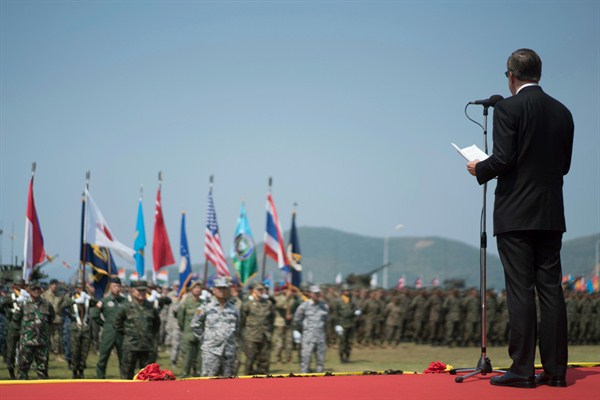When the head of U.S. Pacific Command, Adm. Harry Harris, made a rare visit last month to Thailand for this year’s Cobra Gold military exercises—Asia’s largest multinational drill—some saw it as the start of a thaw in an alliance that had frozen since a bloodless coup in Bangkok in May 2014. In fact, the visit of the highest-ranking U.S. official since the coup was part of an already ongoing effort by both Washington and the junta to improve bilateral ties, despite enduring political and strategic realities that continue to pose challenges for the relationship.
Coups are not new to U.S.-Thailand ties. Thailand has experienced 19 of them since 1932—12 of them successful—and its defense alliance with the United States was initially forged under a virtual military dictatorship in Thailand in 1954. But the May 2014 putsch, which came after a decade of political turmoil and amid concerns about Thailand’s future stability due to an impending royal succession, ushered in a period of profound uncertainty. Few expected a return to normalcy anytime soon, with things likely to get worse before they got better.
The coup initially placed the alliance under strain. For the United States, a full resumption of ties could only occur with the restoration of an elected government and an easing of Washington’s concerns on human rights, which meant that its oldest alliance in Asia was in limbo just as the Obama administration was looking to cement its “rebalance” to the Asia-Pacific. Washington suspended some military aid, and U.S. diplomats began calling publicly and privately for the restoration of democratic rule in Thailand, resulting in some heated exchanges with the junta.

